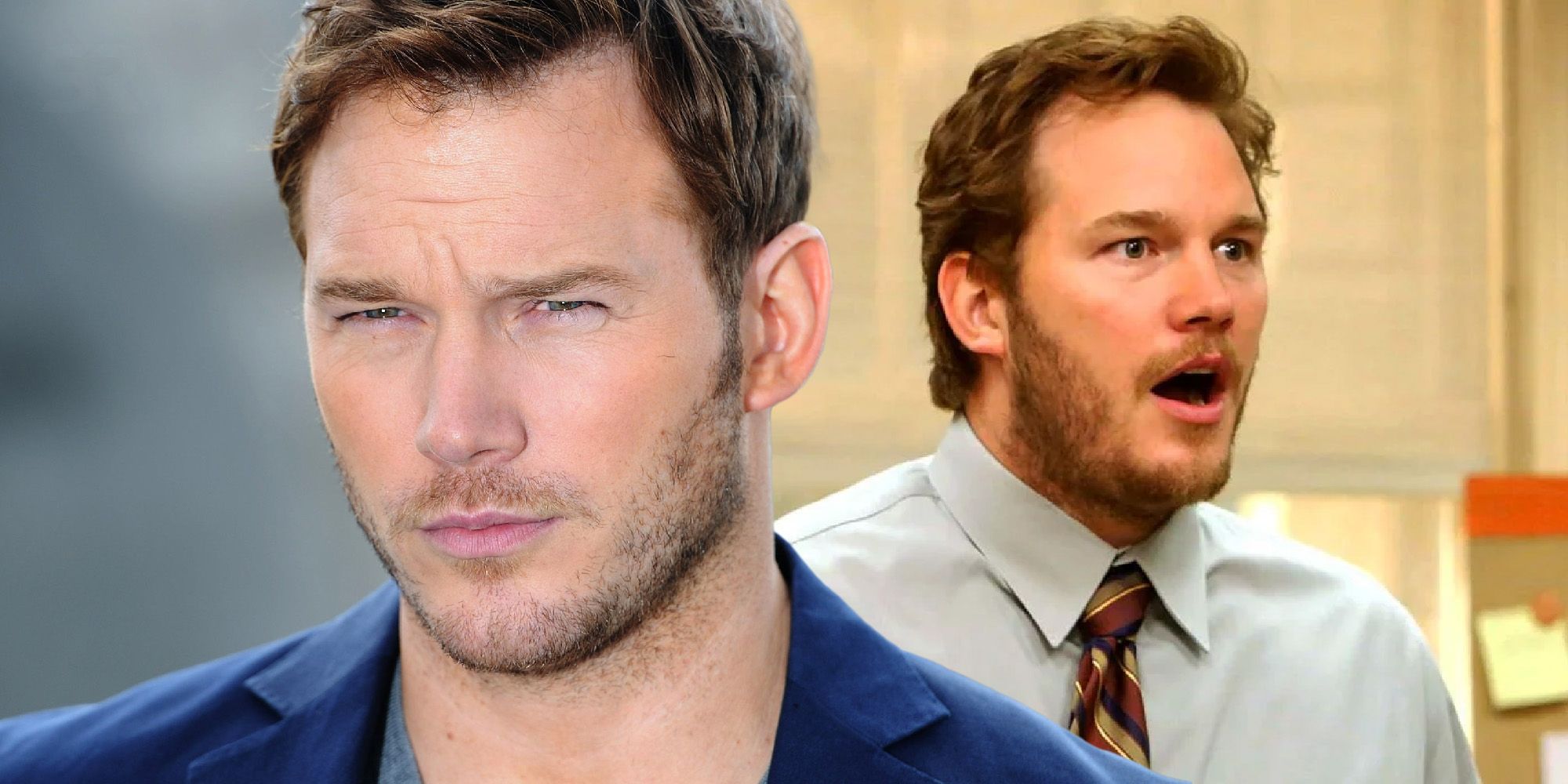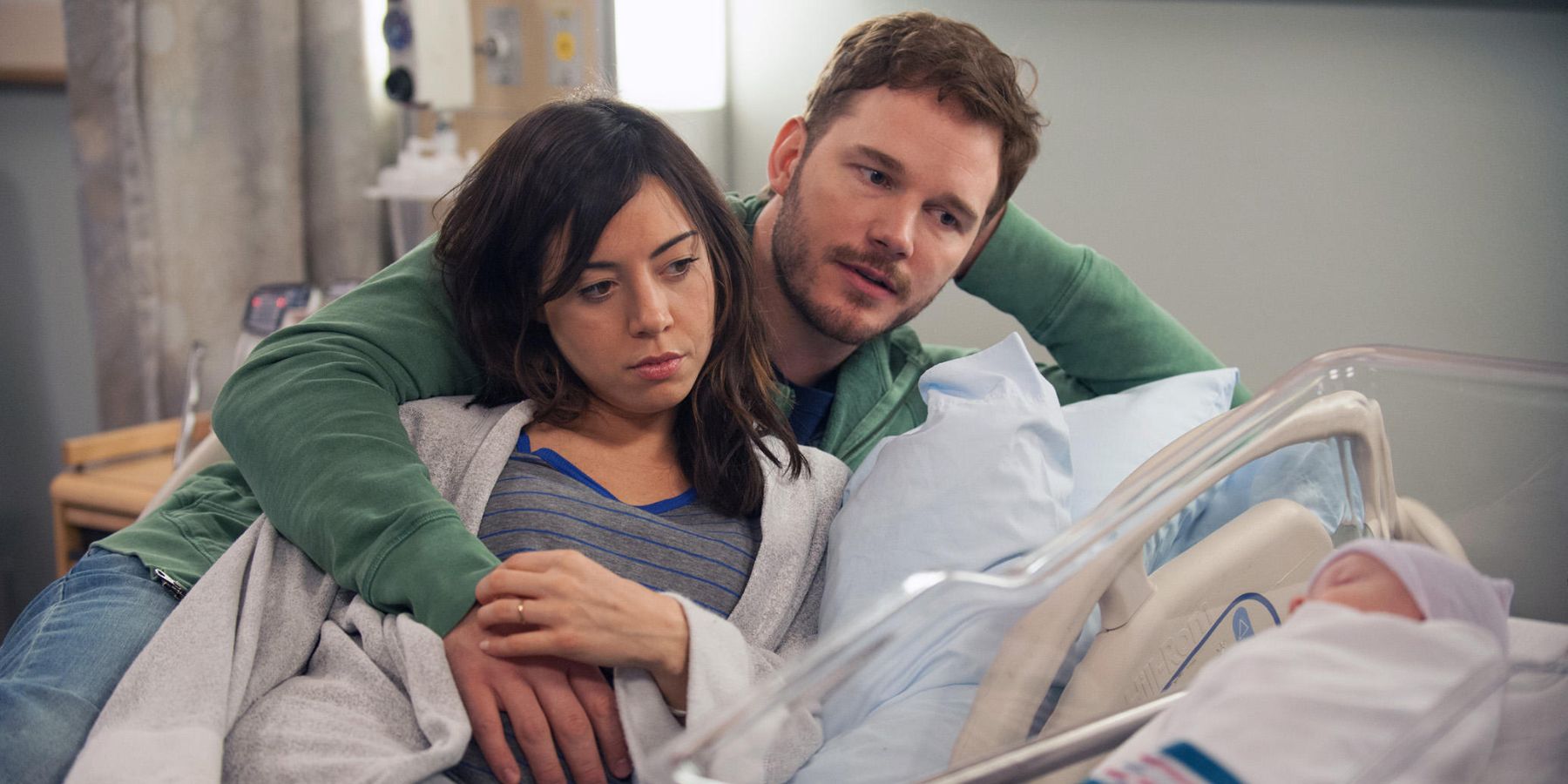Parks & Recreation ended on a high note by giving the audience some quick glimpses at the main characters' future, showing how they all found their right paths and lived happy lives, but Chris Pratt pitched an idea that, while fun to him, was actually pretty dark. Created by Greg Daniels and Michael Schur, Parks & Recreation premiered on NBC in 2009 and came to an end in 2015 after seven seasons, though it wasn’t an easy journey as the first season wasn’t well-received, but the writers found the right tone for the show and subsequent seasons were better received.
Parks & Recreation followed the daily lives of perky bureaucrat Leslie Knope (Amy Poehler) and her friends and coworkers from the Parks Department in the fictional town of Pawnee, Indiana. Many of Leslie’s friends became very popular with the audience thanks to their quirks and, in some cases, how relatable their views of the world were, as was the case of Andy Dwyer (Chris Pratt). Andy was initially planned to be a guest star, but he ended up becoming part of the main cast after the positive reaction of the audience.
Andy Dwyer was the lovable slacker of Parks & Recreation, and while it seemed for a while that he was stuck as the dim-witted character with no real job, Andy went through some necessary development and finally found his true calling but without losing his essence. Andy went from shoeshiner at City Hall to lead actor and producer of his own TV show, Johnny Karate’s Super Awesome Musical Explosion Show, as well as a family man as he and April were shown becoming parents in the flashforwards in the Parks & Recreation finale. Every main character got a happy ending, but the series finale could have taken a dark turn had the producers listened to Chris Pratt’s idea for the final episode.
The main cast of Parks & Recreation, along with co-creator Michael Schur, visited Late Night with Seth Meyers (via THR) back in 2015 to talk about the series finale, where Meyers asked if the cast had ideas for the finale that were turned down. Schur revealed that Pratt pitched him an idea that, according to him, “would be funny to see”, and it was a finale in the style of Six Feet Under, where it would have been revealed how each character died. Pratt chimed in to explain his idea, in which a caption would have explained the characters’ deaths, and he had a very clear idea of how Andy and April died. Pratt’s idea was that Andy was going to die because he was left in a hot car with the windows rolled up, and April would have died some time later of a broken heart. Of course, the idea was turned down, and the show ended on a happier note, with the only death being that of Jerry at the age of 100.
While Pratt’s idea could have been a funny one depending on the angle, truth is that the show was better off without it, as adding captions revealing more about the futures of the characters has become an overused resource and it risked turning the final episode into a very sad one, which doesn’t fit with the show’s tone. In the end, the Parks & Recreation finale is remembered for how it addressed its characters’ futures and for giving them the closure they deserved, and what happened beyond what was shown is up to the imagination of viewers.


